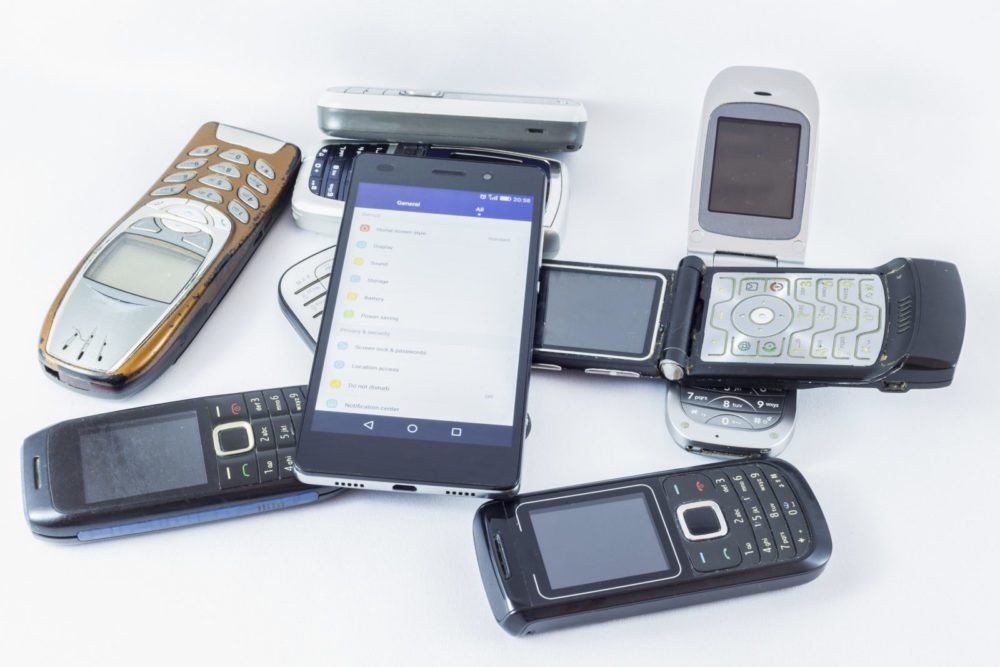Electronic hoarding of used electronics and old electronics can be a major issue and can not only clutter up your household but also harm the environment. Here’s how to stop hoarding.
There’s a term called digital hoarding, which is sometimes referred to as e-hoarding. Think of it as the electronic equivalent of someone who keeps a file cabinet filled to the brim with old papers — documents and notes and files that no longer have any relevance, but which they keep anyway.
Digital hoarding is something similar: a reluctance to delete electronic material that’s no longer valuable. Often it means the mass storage on a computer, smartphone or another device of digital artifacts and thoroughly irrelevant electronic data.
It’s like a form of compulsive hoarding, only in cyberspace.
It’s hard to say why some people refuse to let go of old, outdated and outmoded papers and documents, or digital material. There’s even a term for throwing away or deleting digital clutter: Housekeeping.
But these days, with an understanding of the problems created by the sharply rising amount of e-waste being generated around the world, and the environmental risks from it, there’s a growing concern about another group: gadget hoarders.
The problem with e-waste, or used electronics that get discarded by the owners, has been well-documented. The best solution is to recycle e-waste, so the parts within them that still have value can be removed and used to make new products; and to keep the toxic chemicals inside them, like mercury and lead, from leaching into the soil and water if they get dumped into landfills.
We know that recycling rates for e-waste remain low, and need to be improved. That’s why nations around the world are starting to pass laws that mandate the recycling of e-waste to prevent further environmental and health hazards.
And we know that far too many people are still tossing their e-waste out with their regular trash, sending it to landfills where it doesn’t belong, rather than having it recycled.
But what about another group, that doesn’t take their used electronics to a recycling firm, but doesn’t throw them out, either.
They’re known as gadget hoarders: People who buy or are given a gift of a brand new smartphone, tablet, laptop or other device, and then shove their old computers and tablets into junk drawers or closets. Why do they keep a device they no longer want?
The bottom line is that there are both environmental and economic reasons why we want them to recycle those devices, and not hoard them.
Why Do Consumers Hoard Unwanted and Used Electronics?

People usually get rid of their junk cars, appliances, home furniture and bathroom fixtures when they no longer want them – but not everyone makes the decision to part with an electronics device once they decide to stop using it. Why?
One reason may be that people are simply not aware of what their options are. They may not know how to responsibly dispose of electronics.
But this is no small matter. A recent survey by used electronics marketplace uSell reported that 68 percent of Americans have “compulsive gadget hoarding” habits. The site got that figure from the percentage of respondents who have been keeping old gadgets like cell phones and other mobile electronic devices for two years or more without using them. uSell dubbed that “gadget hoarding.”
Consider it the “no time to clear out my attic and/or basement” syndrome, but as uSell noted, a lot of people won’t admit to doing this. Their survey indicated that just 25 percent of Americans admit to having ‘a gadget hoarding’ problem.
So what’s the big deal about people holding onto an old smartphone if it fits neatly in their office desk drawer? The problem is that ensuring these devices get recycled is still the most responsible and appropriate way to handle e-waste.
And the issue of gadget hoarding suggests a lot more education is needed to point this out to consumers. It’s clear the public doesn’t always understand that those older devices contain parts that can be recycled and used to make new products, thereby reducing future manufacturing costs, while also helping to preserve our natural resources through recycling.
It may be that some people understand part of that message: that if they throw their devices in the trash, they could be killing the planet. That’s good.
But they may not know those devices can be brought to an experienced recycling firm like Great Lakes Electronics Corporation, which helps our environment, and helps to hold down the cost of manufacturing new products made from the older recycled devices.
This is not just an issue in the United States. A European study found that while cell phone sales in Finland hit a high of 2.5 million units last year, Finns tend not to part ways with their used mobile devices very often.
Thanks to constant innovation and lower prices, Finns repeatedly invest in new mobile phones, the study found, but their used devices rarely end up at recycling centers.
SERTY, an organization that helps to manage producers’ responsibility for electronics recycling, said their study indicates that less than 1 percent of mobile phones sold in Finland make it to recycling companies. They cite several reasons for that, including:
- Their devices are so small, recycling doesn’t seem important;
- People hoard their old mobile phones “just in case” they need it in an emergency sometime in the future;
- The devices are passed on to their children for them to use.
But there is another key reason why some people don’t discard their older electronics: data security.
Why is Data Security a Major Issue?
Some people hold on to older electronics because they know sensitive information – connected to online purchases they’ve made, to online banking, to their medical records, and so on – is still hidden on them, and they don’t know how to remove it. They’re concerned that their most personal data might fall into the wrong hands, including identity thieves.
They have good reason to be concerned, particularly if they simply threw their old laptop or smartphone out, knowing it contains confidential information that they don’t want anyone to recover.
What they may not understand is that recycling firms can become your data security experts who specialize in secure media destruction. Great Lakes Electronics Corporation, for example, will eliminate any worry you have about disposing of old hard drives and the data they contain, by offering complete data destruction with their in-house data elimination processes.
Great Lakes Electronics Corporation also provides you with Certificates of Destruction and Certificates of Data Deletion upon request.
So the bottom line is you don’t need to let concerns about your sensitive data on electronics prevent you from recycling those devices. By recycling your electronics, you help out the environment, prevent clutter in your home, and help manufacturers lower costs by reusing parts from these old electronics.
All you need is a reputable e-waste recycling company like Great Lakes Electronics Corporation to bring those devices to.
Old Electronics Recycling
Keeping your home clutter free isn’t always easy, and most of us have obsolete items that, for one reason or another, we’re not willing to throw out.
On the other hand, there’s a strong incentive not to let your old electronics join the list of items that you might be hoarding. Bringing them to a recycling firm helps find a reuse for the parts that still have value.
And if you’re worried about data security issues, keep in mind that a certified recycler will wipe your device clean before it gets recycled. If your home is broken into and older devices sitting in your closet get robbed, that won’t be the case.
The bottom line is that storing away unused electronics instead of recycling them does more harm than good.
The solution is to turn those devices over to an experienced firm like Great Lakes Electronics Corporation, which has years of experience performing environmentally friendly recycling of electronic products and can become your data security experts.
The team at Great Lakes will disassemble these items into component parts, and the ones that still have value can be sold for reuse. Other parts are used for metals recovery. Everything within your devices gets recycled.
And by recycling with Great Lakes Electronics Corporation, you won’t have to worry about the data you left behind on those hard drives.
To learn more, contact Great Lakes Electronics Corporation at 888-392-7831 today.

